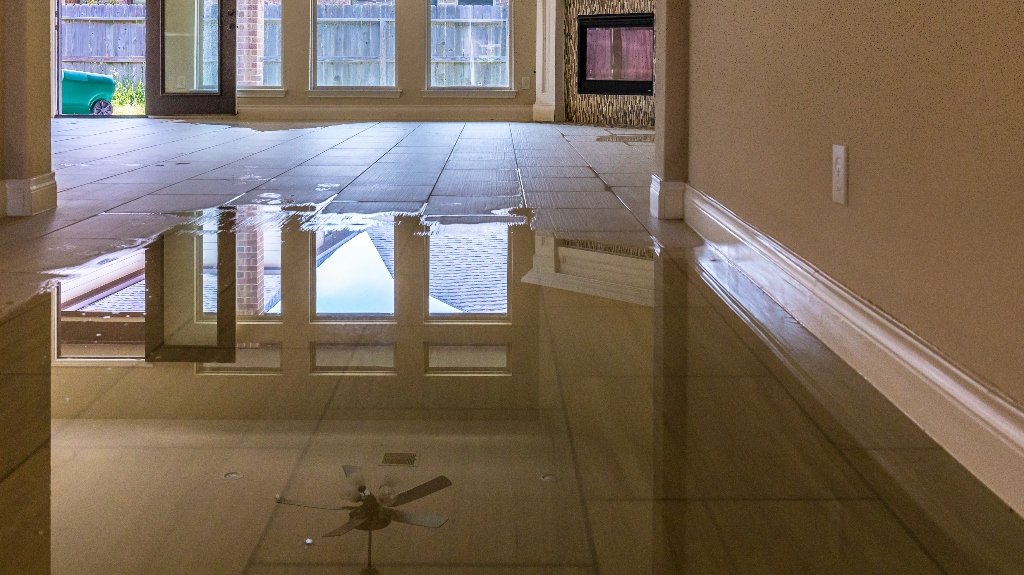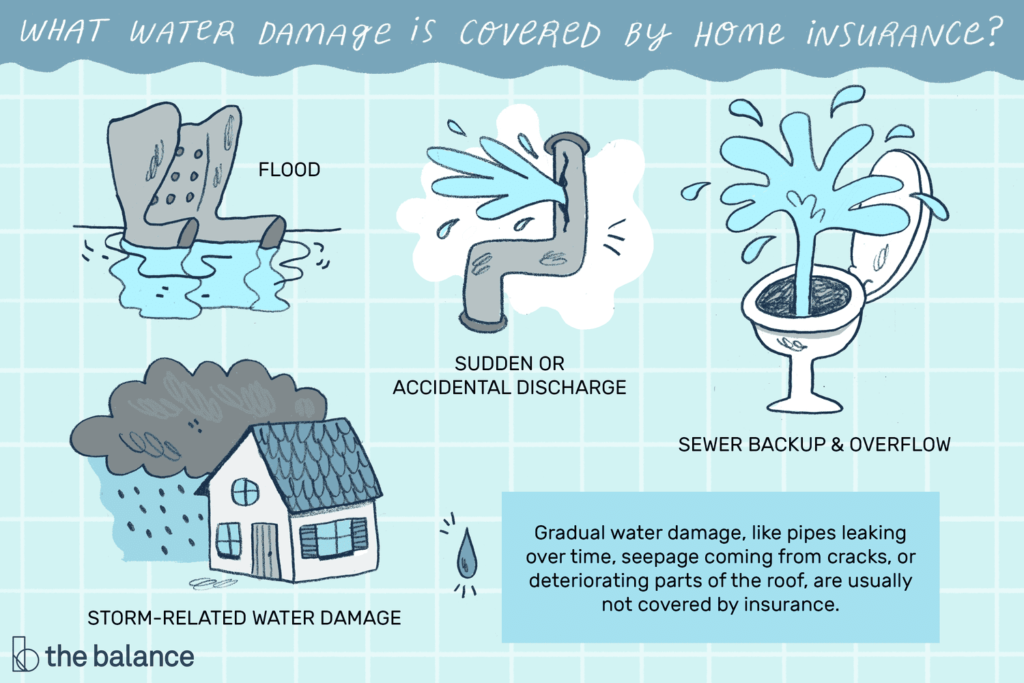Water damage can strike unexpectedly, leaving homeowners grappling with costly repairs. From burst pipes to basement flooding, the financial burden can be overwhelming. One of the first questions homeowners often ask is, “Does my insurance cover this?” Understanding the nuances of homeowners insurance policies is critical to safeguarding your property and wallet. In this guide, we’ll break down what you need to know about water damage and homeowners insurance.
Types of Water Damage Covered by Homeowners Insurance
Homeowners insurance typically covers water damage caused by sudden and accidental events. Here are common scenarios where coverage applies:
Burst Pipes: If a pipe bursts due to freezing or sudden failure, your insurance policy will usually cover the resulting damage.
Appliance Malfunctions: Damage from a washing machine or dishwasher leak caused by mechanical failure is often covered.
Roof Leaks (from Storms): If a storm damages your roof and water enters your home, insurance typically covers the repair and resulting damage.
Accidental Overflows: Water damage from a bathtub or sink overflowing unintentionally may be covered.

Key Exclusions
Not all water damage scenarios are covered. Here are common exclusions:
Flood Damage: Standard homeowners insurance policies do not cover flood-related damage. You’ll need separate flood insurance for this type of protection.
Gradual Leaks: Slow leaks resulting from poor maintenance or wear and tear are typically excluded.
Sewer Backups: Damage caused by sewer or drain backups usually requires an additional rider or endorsement.
Understanding these exclusions is crucial when filing a claim or deciding on additional coverage.
How to Determine Your Coverage
To know if your homeowners insurance covers water damage, start by reviewing your policy. Key components to look for include:
Dwelling Coverage: This covers the physical structure of your home, including walls, floors, and ceilings. What is Dwelling?
Personal Property Coverage: This protects your belongings, such as furniture and electronics, if they are damaged by water.
Additional Living Expenses (ALE): If your home becomes uninhabitable due to water damage, ALE can cover temporary housing and related expenses.
Pro Tip: Speak to Your Insurance Agent
Insurance policies can be complex. Discussing your coverage with an agent ensures you understand what is included and can help identify gaps in protection

Steps to Take When Water Damage Occurs
If water damage strikes, acting quickly is critical to minimize losses and streamline the claims process. Here’s what to do:
Document the Damage: Take photos and videos of the affected areas. This visual evidence is essential for filing a claim.
Prevent Further Damage: Use towels, tarps, or buckets to stop water from spreading. Most policies require homeowners to mitigate additional damage.
Contact Your Insurance Company: Notify your insurer immediately. Provide details about the incident and follow their guidance for filing a claim.
Hire Professionals: Bring in a certified water extraction and restoration company like 24/7 Water Extraction Pros to assess the damage and start cleanup.
Flood Insurance: Do You Need It?
Flooding is one of the most common causes of water damage, but it’s not covered under standard homeowners insurance. According to FEMA, even an inch of water can cause thousands of dollars in damage. If you live in a flood-prone area, investing in a separate flood insurance policy can save you significant costs in the long run.
How to Get Flood Insurance
Flood insurance is available through the National Flood Insurance Program (NFIP) and private insurers. Premiums are based on factors like location, flood risk, and property value.
Tips for Preventing Water Damage
While insurance can help, prevention is always better than repair. Here are some proactive steps to protect your home:
Inspect Your Plumbing Regularly: Check for leaks, corrosion, and loose connections.
Maintain Your Roof: Clean gutters and repair damaged shingles to prevent water intrusion.
Install a Sump Pump: If you have a basement, a sump pump can protect against flooding.
Seal Foundation Cracks: Prevent groundwater from seeping into your home by addressing foundation cracks early.
Invest in Water Sensors: Smart water sensors can detect leaks early and alert you to potential problems.
Why Choose 24/7 Water Extraction Pros
When disaster strikes, you need a trusted partner to restore your home quickly and effectively. At 24/7 Water Extraction Pros, we specialize in emergency water extraction, moisture detection, drying, and mold prevention. With over 20 years of experience serving Ann Arbor and surrounding areas, our team is equipped to handle water damage of any scale.
Services We Offer:
Emergency Water Removal: Available 24/7 to respond to your needs promptly.
Comprehensive Assessments: State-of-the-art moisture detection tools to ensure thorough drying.
Mold Prevention: Proactive measures to keep your home safe and healthy.
Final Thoughts
Water damage can be devastating, but understanding your homeowners insurance policy helps you navigate these situations with confidence. Remember to review your coverage, act quickly when damage occurs, and take preventive measures to protect your home.
If you’re dealing with water damage, don’t wait. Contact 24/7 Water Extraction Pros for immediate assistance and expert care. Call us today and let us help restore your peace of mind.
